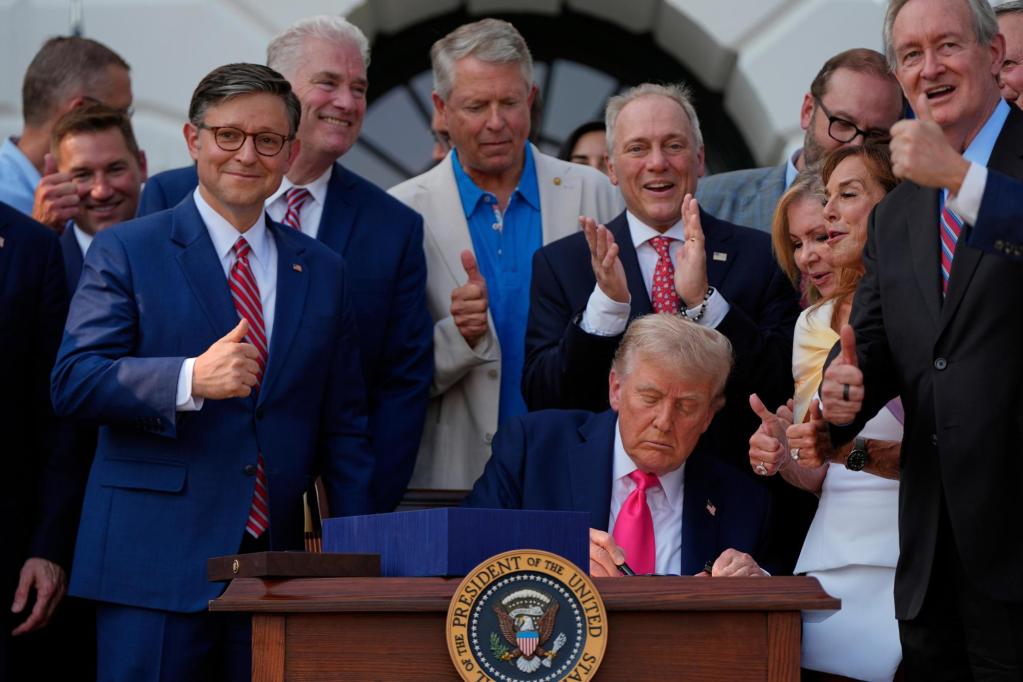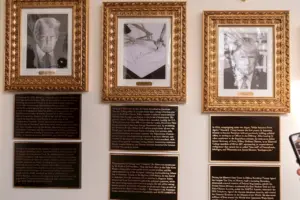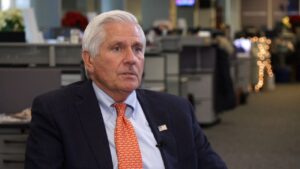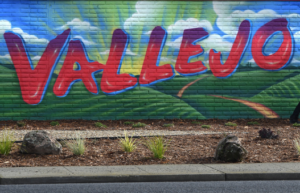
Political denialism is increasingly shaping the landscape of American governance, significantly affecting democratic processes and societal realities. Recent analyses highlight how deceptive practices and divisive rhetoric erode trust in political institutions, with former President Donald Trump reportedly disseminating over 30,000 falsehoods during his first term. This trend has fostered an environment where fear and misinformation thrive, leading to dysfunctional governance and adverse human consequences.
Congressman Mike Thompson emphasized the damaging effects of political evasion, particularly regarding gun violence prevention, stating, “The only place gun violence prevention is a partisan issue is in the United States Congress.” This statement underscores the tendency of congressional Republicans to prioritize political loyalty over ethical responsibility to the Constitution and their constituents.
One of the most controversial pieces of legislation, Trump’s One Big Beautiful Bill Act, was approved by a largely passive Republican-controlled Congress. This legislation is projected to increase after-tax revenues for the wealthiest 10% by 2.3%, while simultaneously reducing the bottom 10% by 3.9%. The national debt is set to rise by $4 trillion, resulting in higher costs for energy, mortgages, and everyday expenses for average Americans.
The consequences of these political maneuvers extend to critical public services. Federal funding reductions in Virginia include a $16.1 million cut to public broadcasting and a $2 billion decrease for hospitals, jeopardizing the viability of rural healthcare facilities and leaving 300,000 individuals without health insurance. Additionally, funding for Chesapeake Bay water quality and habitat restoration has also been reduced, impacting environmental efforts.
As documented by journalist Ilya Somin, reliance on quick information sources, particularly social media, often exacerbates ignorance and bias among the populace. He argues that this phenomenon is not merely a result of a lack of intelligence but stems from a disincentive to seek out comprehensive political information and engage in unbiased evaluations.
The immigration debate further illustrates the political climate’s distortion of reality. Despite immigrants, including undocumented individuals, constituting a significant portion of the agricultural workforce—approximately two-thirds of the 2.4 million crop workers—misleading narratives persist. The Cato Institute reports that immigrants do not take jobs from native-born Americans, do not disproportionately receive welfare benefits, and have no net negative effect on government budgets. Yet, incidents involving undocumented immigrants often dominate news cycles, creating a skewed perception of crime.
Former President Barack Obama noted in 2016 that Trump represents not an anomaly but rather a culmination of the Republican Party’s evolving narrative. Newt Gingrich, former Speaker of the House, has been cited for fostering a culture of political aggression characterized by a “no compromise” mentality, further entrenching division.
The implications of these political developments are dire. A staggering 83% of USAID’s international programs have been terminated, which could result in an estimated 14 million deaths by 2030. Despite the Republican Party being the most religious among developed nations, the moral implications of legislative decisions that perpetuate suffering raise critical questions about the values being endorsed.
Speaker of the House Mike Johnson noted the importance of prayer in rallying support for Trump’s legislative agenda, raising the question of what religious values can justify actions leading to widespread illness and poverty. The political landscape now appears to be shaped by a desire to maximize elite wealth while minimizing support for the working class, which has endured stagnant incomes and reduced social services for decades.
The growing disconnect between political rhetoric and the realities facing many Americans highlights a broader crisis of trust and accountability within the political system. Addressing these issues requires a commitment to transparency, ethical governance, and a reevaluation of the narratives that dominate political discourse. As the nation grapples with these challenges, the call for a return to foundational democratic principles becomes increasingly urgent.







